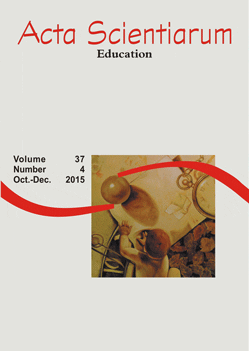<b>Education in the new practice of democratic citizenship: databases of John Dewey
Abstract
The bases of the political art of John Dewey or his new practice of democratic citizenship are reviewed. Dewey is acknowledged as one of the most prominent of the American philosophers in the first half of the twentieth century. He is also the most influential due to endowing philosophy a public task, namely, political and educational concern. From the instrumentalist method applied to the political area, crucial postulates in the major writings of Dewey are selected to revitalize the meaning and draw up the practical impacts of the central element of his political philosophy: ‘the collective power of democratic community’.
Downloads

This work is licensed under a Creative Commons Attribution 4.0 International License.
DECLARATION OF ORIGINALITY AND COPYRIGHTS
I declare that this article is original and has not been submitted for publication in any other national or international journal, either in part or in its entirety.
The copyright belongs exclusively to the authors. The licensing rights used by the journal are the Creative Commons Attribution 4.0 (CC BY 4.0) license: sharing (copying and distributing the material in any medium or format) and adaptation (remixing, transforming, and building upon the material thus licensed for any purpose, including commercial purposes) are permitted.
It is recommended that you read this link for more information on the subject: providing credits and references correctly, among other crucial details for the proper use of the licensed material.















































